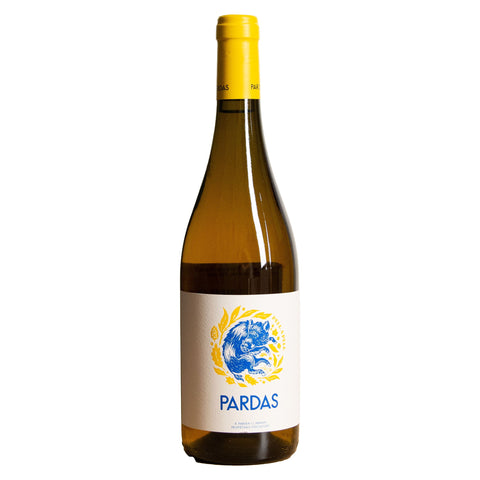
2022 Celler Pardas Xarel-lo "Pell a Pell", Penedès, Spain
It is slightly cloudy, golden, with a beautiful rich, herbaceous nose of lemon curd, quince, and honeyed caramel. On the palette, you'll find fine tannins, Bosc pear, fresh apricot and apple cider. It’s limited and we are going to miss it when gone!
ABOUT THIS WINE
100% Xarel-lo. Vines are grown in chalk and clay soils from the Sant Pere and Canyes vineyards. Grapes are farmed organically, foot stomped and fermented with native yeasts with 12 days of skin contact. Aged for 5 months in stainless steel tanks.
ABOUT THIS PRODUCER
Celler Pardas started when two growers from Penedès, Ramon Parera and Jordi Arnan, acquired an old estate called Can Comas in Alt Penedès, close to Sant Sadurni d’Anoia. The property surrounds an old medieval farm and spans 30 hectares of forest and other crops (mainly cereal) as well as the local grape varieties—Sumoll and Xarel-lo—that Ramon and Jordi planted for their wines. The other source of fruit for the wines come from two ancient plots further north, where they own old vines of Sumoll, Xarel-lo and Malvasía de Sitges; Ramon calls this fascinating local strain of Malvasía, an incredibly acidic grape notoriously difficult to vinify, the “Riesling of the Mediterranean”.
From the start the work on the land focused on a holistic approach; they manage the forest surrounding the vineyards as well as the land bordering them to create a whole agrarian ecosystem and live in the property. Many biodynamic principles are followed: the vines are dry-farmed, and the clay-limestone rich soils are not ploughed to avoid erosion and foster the micro-biology of the place. They regularly use ground vegetation, and no synthetic products nor pesticides are utilized. Their work is certified organic.
Ramon and Jordi are in the forefront of the varietal revolution happening in Penedès. The story of native grapes in the region is not unlike many others in different areas: the local varieties, deemed hard to work and less valuable than international ones, were slowly substituted by high-yielding types. Many of the new generation of growers in the area, however, decided to replant and work with the original grapes. Pardas' plantings all come from cuttings of old vines found in the region.
The work in the cellar is as respectful to the wines as their work on the vineyards is to the land. Fermentations are spontaneous, the wines are never clarified nor corrected, and they use a mix of steel, concrete and oak for winemaking and élèvage. The resulting wines are expressive and very direct. Sumoll is not an easy grape to master—“the most masochistic grape there is”, says Jordi— but as the Sus Scrofa shows, Parera and Arnan have conquered its rusticity and are making a delicate, fresh, and immediate wine. The same goes for their Xarel-lo and Malvasía, which are floral and aromatic and yet retain great salinity and minerality, no doubt owing to the chalky and rocky nature of their vineyards.
